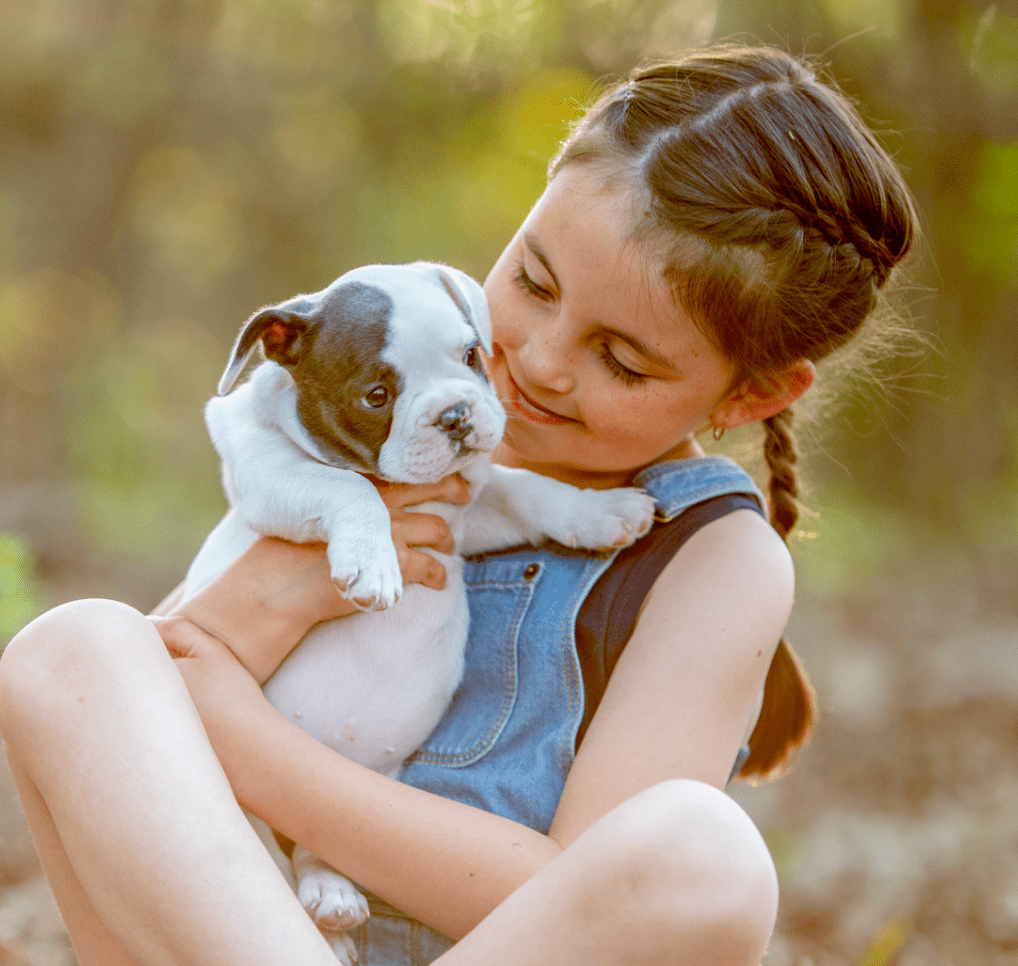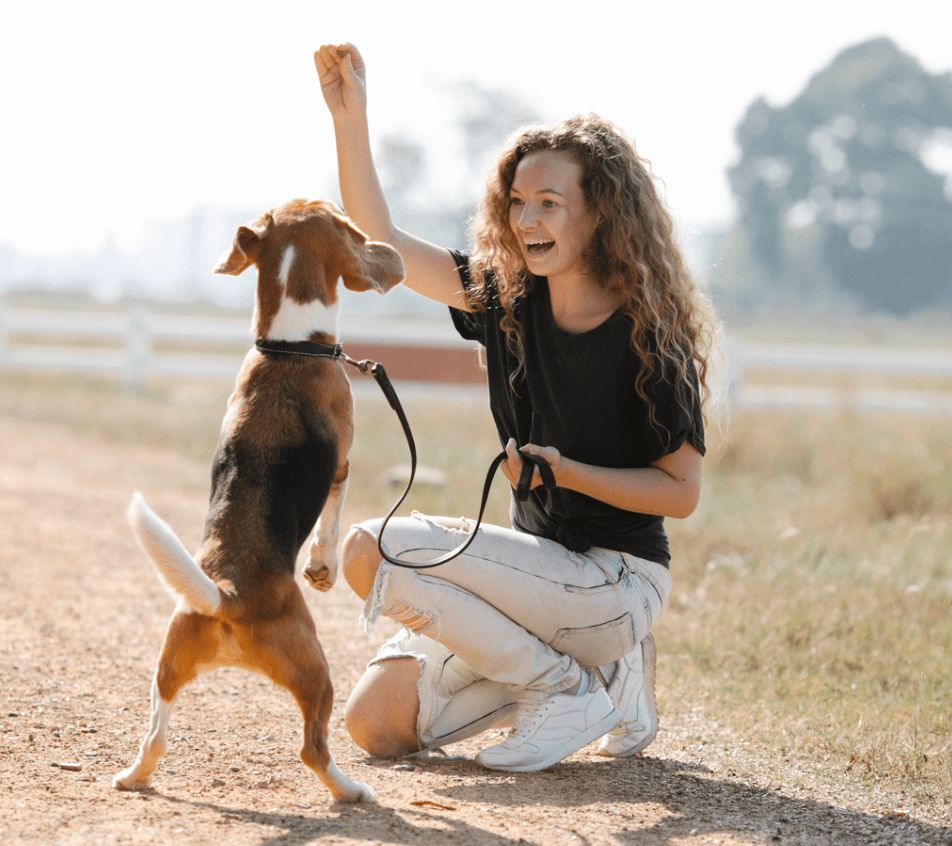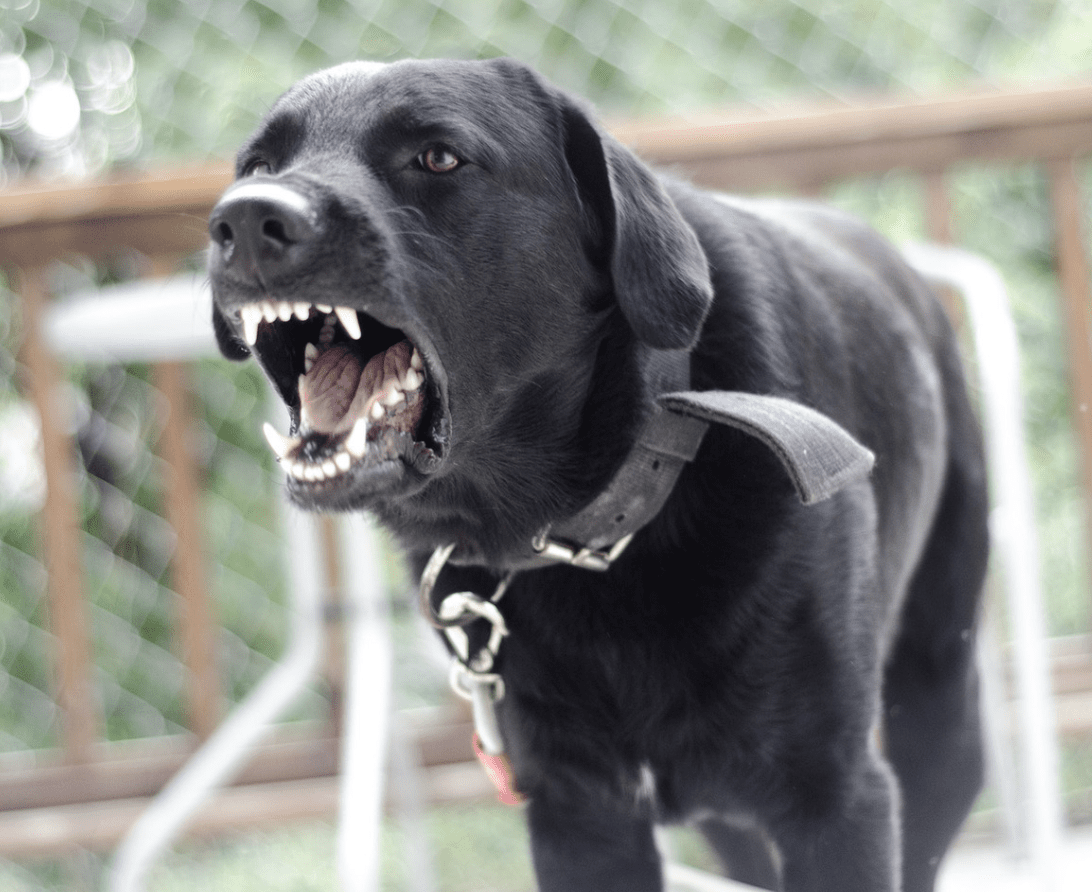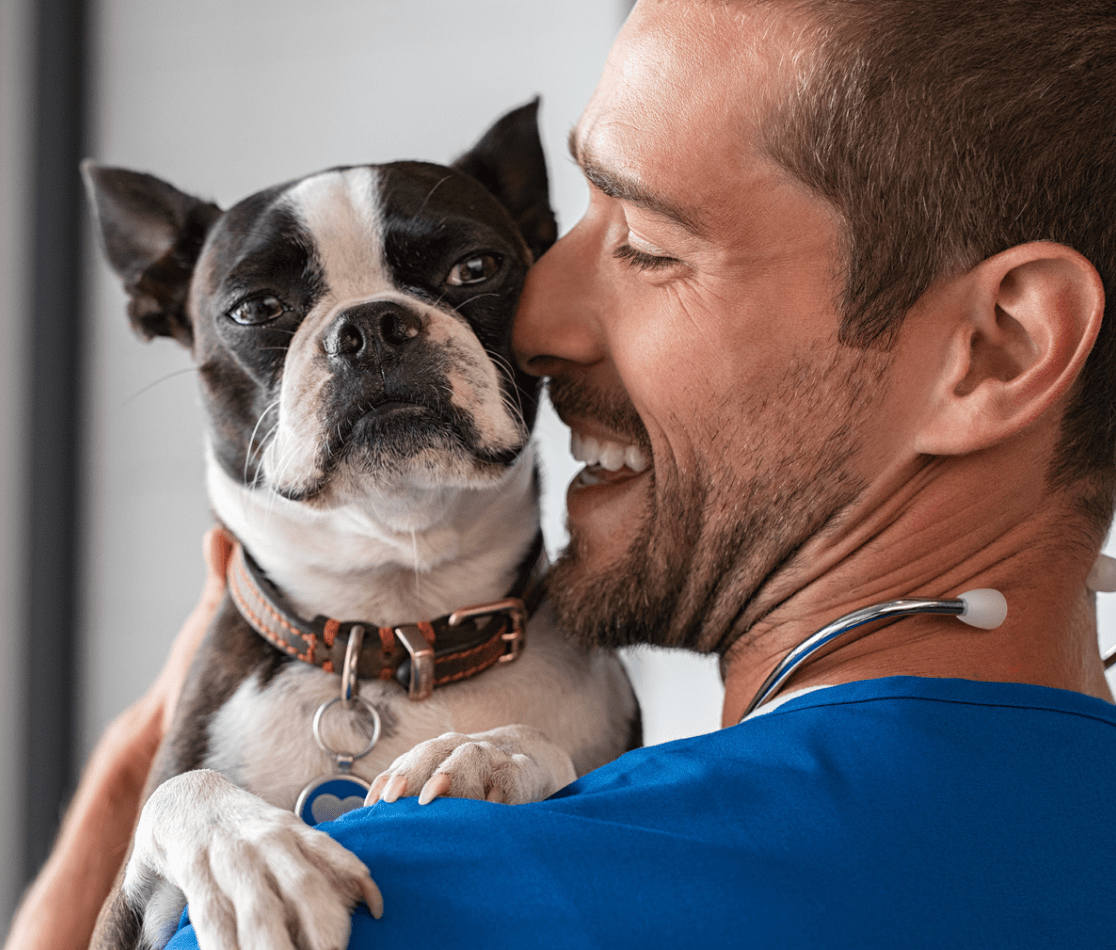THE BEST WORDS OF ADVICE FOR NEW PUPPY PARENTS

Bringing a new dog into your life is a big responsibility, and it can be easy for new dog owners to make mistakes. However, with the right knowledge and preparation, you can ensure that you and your new furry friend have a happy and healthy relationship. In this article, we will discuss some of the most common mistakes made by new dog owners and provide advice on how to avoid them.
Not doing enough research: Before bringing a new dog into your home, it's essential to do your research and choose a breed that is suitable for your lifestyle and living situation. Not researching the breed can lead to unexpected challenges and potential behavior problems.
Not providing proper socialization: Socialization is crucial for a dog's development, and it's essential to expose your new pup to different people, places, and experiences. Failure to socialize your dog can lead to fearfulness and aggression.
Not providing proper training: Training is essential for dogs, and it's important to start training your new pup as soon as possible. Not providing proper training can lead to behavioral issues and make it difficult to handle your dog.
Not providing proper exercise: Regular exercise is essential for a dog's physical and mental well-being. Not providing enough exercise can lead to a host of problems, including obesity, behavioral issues, and depression.
Not providing proper nutrition: A proper diet is essential for a dog's health and well-being. Many new dog owners make the mistake of not providing their pets with a balanced diet, which can lead to health problems and a shortened lifespan.
Not providing proper veterinary care: Regular veterinary check-ups and vaccinations are essential for a dog's health. Many new dog owners make the mistake of not providing their pets with regular veterinary care, which can lead to serious health problems.
By avoiding these common mistakes, new dog owners can ensure that their furry friend has a happy and healthy life. By doing your research, providing proper socialization, training, exercise, nutrition, and veterinary care, you can ensure that your dog is well taken care of and that you have a strong bond with your furry friend.
THE ULTIMATE GUIDE TO RAISING A HAPPY AND HEALTHY CAT

Cats are beloved pets known for their independent nature and playful personalities. However, raising a cat is not without its challenges. It requires a commitment to providing proper care and attention to ensure that your feline friend is happy and healthy. In this ultimate guide, we will go over everything you need to know to raise a happy and healthy cat.
- Provide proper nutrition: Feeding your cat a balanced and nutritious diet is essential for their overall health. Look for high-quality cat food that is appropriate for your cat's age, size, and activity level. Avoid table scraps and human food as it can cause health issues.
- Provide regular veterinary care: Regular check-ups and vaccinations are crucial for your cat's health. It's important to schedule regular appointments with your veterinarian to ensure that your cat is up-to-date on vaccinations and to catch any potential health issues early.
- Provide proper grooming: Cats are known for their fastidious grooming habits, but they still need help with certain areas of their coat. Brush your cat's coat regularly to remove loose hair and prevent hairballs. Also, make sure to keep their nails trimmed and their ears clean.
- Provide plenty of mental and physical stimulation: Cats are natural hunters and require mental and physical stimulation to keep them happy and healthy. Provide plenty of toys, scratching posts and climbing opportunities to keep them entertained and engaged.
- Provide a safe and comfortable living environment: A safe and comfortable living environment is crucial for your cat's well-being. Make sure that your home is free of potential hazards, such as toxic plants and chemicals. Provide a comfortable bed, a cozy spot to nap, and plenty of windows for natural light and fresh air.
- Provide a scratching post: Cats have a natural urge to scratch and they need a place to do it. Provide a scratching post for your cat to use instead of your furniture.
- Provide a litter box: Cats are naturally clean animals and prefer to have their own space to use the bathroom. Make sure to provide a clean litter box and keep it in a quiet and accessible location.
- Provide affection and interaction: Cats are independent animals, but they still crave affection and interaction from their owners. Spend quality time with your cat, playing, grooming and cuddling with them.
TOP 10 TIPS FOR TRAINING YOUR DOG LIKE A PRO

Training your dog can be a fun and rewarding experience, but it can also be a bit overwhelming for new dog owners. However, with the right approach and techniques, you can train your dog like a pro. In this article, we will go over some tips for training your dog that will help you achieve success.
- Start early: The earlier you start training your dog, the better. Puppies have a much easier time learning new behaviors than adult dogs. Start training your puppy as soon as you bring them home, even if it's just basic commands like "sit" and "stay."
- Use positive reinforcement: Positive reinforcement is the most effective way to train your dog. Reward your dog with treats and praise when they perform a desired behavior. Avoid using physical punishment or negative reinforcement, as it can lead to fear and aggression.
- Keep training sessions short and consistent: Dogs have a short attention span, so keep training sessions short and consistent. Train your dog for a few minutes several times a day rather than trying to do it all in one long session.
- Be patient: Training your dog takes time and patience. Don't expect your dog to learn everything overnight. Be patient and consistent, and you will see progress over time.
- Use a clicker: A clicker is a small device that makes a clicking noise when pressed. It's a great tool for training your dog as it allows you to mark the precise moment when your dog performs the desired behavior.
- Socialize your dog: Socializing your dog is essential to help them learn how to behave around other dogs and people. Socialization can help reduce fear, anxiety, and aggression.
- Enroll in a training class: Enrolling in a training class with a professional trainer can be a great way to learn new training techniques and get feedback on your progress.
- Practice in different environments: It's essential to practice training your dog in different environments. This will help your dog learn to respond to commands in any situation.
- Be consistent with commands: Consistency is key when training your dog. Use the same commands and hand signals every time you train your dog.
- Have fun: Training your dog should be a fun and enjoyable experience for both you and your dog. Have fun and enjoy the process, and you will find that training your dog is much easier.
THE IMPORTANCE OF PROPER NUTRITION FOR CATS AND DOGS

Proper nutrition is essential for the overall health and well-being of your cat or dog. A well-balanced diet can help prevent many health issues, such as obesity, dental problems, and certain diseases. In this article, we will go over the importance of proper nutrition for cats and dogs and provide some tips on how to ensure that your pet is getting the nutrients they need.
Understand your pet's nutritional needs: Cats and dogs have different nutritional needs. Cats, for example, require more protein and fat in their diet than dogs. Understanding your pet's nutritional needs is the first step in providing them with a well-balanced diet.
Choose high-quality food: Not all pet foods are created equal. Look for high-quality food that is appropriate for your pet's age, size, and activity level. Avoid cheap, low-quality foods that contain fillers and by-products.
Feed the right amount: Overfeeding or underfeeding your pet can lead to health problems. Follow the feeding guidelines on the pet food package or consult with your veterinarian to determine the right amount of food for your pet.
Provide a balanced diet: A balanced diet is essential for the overall health of your pet. Make sure that your pet's diet contains the right balance of protein, fats, carbohydrates, vitamins, and minerals.
Avoid table scraps and human food: Table scraps and human food can cause health problems for your pet. They often contain ingredients that are not appropriate for pets and can lead to weight gain and other health issues.
Provide fresh water: Fresh, clean water is essential for your pet's health. Make sure that your pet has access to clean water at all times.
Watch for signs of poor nutrition: If your pet is losing weight or has a dull coat, it may be a sign of poor nutrition. Consult with your veterinarian to determine if your pet's diet needs to be adjusted.
Consider a homemade diet: Some pet owners prefer to prepare homemade meals for their pets. Consult with your veterinarian to ensure that the homemade diet you prepare for your pet is nutritionally balanced and meets all of your pet's needs.
Monitor your pet's weight: Obesity is a common problem among pets and can lead to health problems
THE TOP 10 MOST COMON BEHAVIOURAL ISSUES IN DOGS - AND HOW TO ADDRESS THEM

As a dog owner, you may have experienced some behavioral issues with your furry friend. From barking at the mailman to digging up the backyard, these issues can be frustrating and even overwhelming. But don't worry, you're not alone! In this article, we'll go over the top 10 most common behavioral issues in dogs and provide some tips on how to address them. So sit, stay, and let's get started!
Barking: Whether it's at the mailman, the neighbor's cat, or even just the sound of a car passing by, excessive barking can be a nuisance. One way to address this issue is to provide your dog with plenty of exercise and mental stimulation. A tired dog is a quiet dog!
Digging: If your dog is digging up your backyard like a furry excavator, it could be a sign of boredom or a lack of exercise. Providing your dog with plenty of toys and regular walks can help curb this behavior.
Chewing: From shoes to furniture, dogs love to chew on everything. To address this issue, provide your dog with plenty of chew toys and make sure they are getting enough exercise and mental stimulation.
Jumping: If your dog is jumping on people, it could be a sign of excitement or a lack of training. Teaching your dog to "sit" and "stay" can help curb this behavior.
Separation anxiety: If your dog becomes anxious or destructive when left alone, it could be a sign of separation anxiety. Providing your dog with plenty of exercise and mental stimulation before leaving, and leaving them with a treat-dispensing toy can help.
House training: Potty training can be a frustrating experience for both you and your dog. Consistency and patience are key when it comes to house training.
Leash pulling: If your dog is pulling on the leash, it could be a sign of excitement or a lack of training. Teaching your dog to "heel" can help curb this behavior.
Aggression: If your dog is displaying aggressive behavior, it's important to address the issue immediately. Consult with a professional trainer or behaviorist to determine the cause of the aggression and develop a training plan.
Whining: If your dog is whining excessively, it could be a sign of boredom or anxiety. Providing your dog with plenty of exercise and mental stimulation can help curb this behavior.
Running away: If your dog is a runner, it could be a sign of a lack of training or a lack of boundaries. Teaching your dog to "come" and "stay" can help curb this behavior and keep them safe.
In conclusion, as much as we love our furry friends, they can sometimes drive us crazy with their behavior. But don't worry, with patience, consistency and by providing them with plenty of exercise and mental stimulation, you can address these issues. Remember, training is a two-way street, and it's just as much about teaching your dog as it is about teaching yourself. And remember to always enjoy the journey and have fun with your pooch!
UNDERSTANDING OUR FAVOURITE BREEDS OF CATS - A COMPLETE GUIDE

When it comes to choosing a feline companion, there are so many breeds to choose from. From the fluffy Maine Coon to the sleek Siamese, each breed has its own unique characteristics and personality traits. In this article, we'll take a closer look at some of the most popular cat breeds and provide a complete guide to understanding the differences between them. So grab a bag of catnip and let's get started!
Maine Coon: These fluffy giants are known for their friendly and outgoing personalities. They are great family pets and are known to be very loyal to their owners. They are also known for their love of water and have been known to play in their water bowls.
Siamese: These sleek and elegant cats are known for their intelligence and sociability. They are very vocal and love to communicate with their owners. They are known to be very affectionate and make great companions.
Persian: These fluffy balls of fluff are known for their sweet and docile personalities. They are a bit more laid-back than some other breeds and are known to be very affectionate with their owners.
Sphynx: These hairless wonders are known for their outgoing and friendly personalities. They are known to be very affectionate and make great companions. They are also known to be very resilient and can adapt to different temperatures well.
Scottish Fold: These cats are known for their distinctive folded ears and their sweet personalities. They are known to be very affectionate and make great companions.
British Shorthair: These cats are known for their round faces and their calm and docile personalities. They are known to be very affectionate and make great companions. They are also known for their love of napping and lounging around.
Bengal: These cats are known for their wild and exotic looks. They are known to be very active and playful and are known to be very intelligent. They can be quite vocal and are known to have a strong prey drive.
Abyssinian: These cats are known for their slim and athletic builds and their adventurous personalities. They are known to be very active and playful and are known to be very intelligent.
Manx: These cats are known for their short tails and their outgoing personalities. They are known to be very affectionate and make great companions. They are also known for their love of playing fetch.
CARING FOR YOUR SENIOR CAT - WHAT YOU NEED TO KNOW

As cats age, their needs and care requirements change. It's important to understand and address these changes in order to ensure that your senior cat lives a happy and comfortable life. Here is some friendly advice on caring for your senior cat:
Regular check-ups: Regular visits to the vet are especially important for senior cats. Your vet will be able to detect any potential health problems early on and provide appropriate treatment.
Diet and nutrition: As cats age, their dietary needs change. Senior cats may require a diet that is higher in protein and lower in fat to maintain muscle mass and support organ function. Your vet can recommend the best diet for your senior cat.
Exercise and activity: Senior cats may not have the same energy levels as younger cats, but it's still important to encourage them to stay active. Provide plenty of opportunities for your senior cat to stretch and move around, such as scratching posts, perches, and interactive toys.
Comfort and relaxation: As cats age, they may develop arthritis and other conditions that can cause discomfort. Provide your senior cat with a comfortable bed, and consider using a heating pad or warm blanket to keep them cozy.
Grooming: Regular grooming is important for all cats, but especially for senior cats. Regular grooming can help to keep their coat and skin healthy, and can also help to detect any lumps, bumps, or other abnormalities.
Patience and understanding: Caring for a senior cat requires patience and understanding. Your senior cat may not have the same energy levels or abilities as they did when they were younger, but they still have a lot of love to give.
Medications: Some older cats may need medications to help with age-related issues. Be sure to follow your veterinarian's instructions when administering any medications to your senior cat.Caring for a senior cat can be a rewarding experience, but it does require some extra attention and understanding. With the right care, your senior cat can continue to live a happy and comfortable life. Remember to always consult with your veterinarian for personalized advice for your senior cat.
Caring for a senior cat can be a rewarding experience, but it does require some extra attention and understanding. With the right care, your senior cat can continue to live a happy and comfortable life. Remember to always consult with your veterinarian for personalized advice for your senior cat.
THE IMPORTANCE OF REGULAR VET CHECK-UPS FOR YOUR FURRY FRIEND

Bringing a new dog into your life is a big responsibility, and it can be easy for new dog owners to make mistakes. However, with the right knowledge and preparation, you can ensure that you and your new furry friend have a happy and healthy relationship. In this article, we will discuss some of the most common mistakes made by new dog owners and provide advice on how to avoid them.
Not doing enough research: Before bringing a new dog into your home, it's essential to do your research and choose a breed that is suitable for your lifestyle and living situation. Not researching the breed can lead to unexpected challenges and potential behavior problems.
Not providing proper socialization: Socialization is crucial for a dog's development, and it's essential to expose your new pup to different people, places, and experiences. Failure to socialize your dog can lead to fearfulness and aggression.
Not providing proper training: Training is essential for dogs, and it's important to start training your new pup as soon as possible. Not providing proper training can lead to behavioral issues and make it difficult to handle your dog.
Not providing proper exercise: Regular exercise is essential for a dog's physical and mental well-being. Not providing enough exercise can lead to a host of problems, including obesity, behavioral issues, and depression.
Not providing proper nutrition: A proper diet is essential for a dog's health and well-being. Many new dog owners make the mistake of not providing their pets with a balanced diet, which can lead to health problems and a shortened lifespan.
Not providing proper veterinary care: Regular veterinary check-ups and vaccinations are essential for a dog's health. Many new dog owners make the mistake of not providing their pets with regular veterinary care, which can lead to serious health problems.
By avoiding these common mistakes, new dog owners can ensure that their furry friend has a happy and healthy life. By doing your research, providing proper socialization, training, exercise, nutrition, and veterinary care, you can ensure that your dog is well taken care of and that you have a strong bond with your furry friend.
DOG V CAT - THE PROS AND CONS

When considering adding a pet to your household, it's important to consider the pros and cons of both cats and dogs to determine which pet would be the best fit for you.
Pros of Cats:
- Cats are generally low maintenance, as they are independent animals and can entertain themselves.
- They have a small footprint and can be great for small spaces.
- They are less demanding of attention and can be left alone for longer periods of time.
- They are generally quieter than dogs, making them a good option for people who live in apartments or have close neighbors.
- They are less expensive to take care of, as they don't require as much food or grooming as dogs do.
Cons of Cats:
- Some cats can be finicky and may not want to be handled or cuddled.
- They may not be as social as dogs, and may not seek out human interaction as much.
- They can be prone to certain health issues such as asthma and lower urinary tract disease.
Pros of Dogs:
- Dogs are highly social animals and thrive on human interaction.
- They can be great companions and provide a sense of security.
- They come in a wide variety of breeds, each with their own unique personalities and characteristics.
- They can be trained to do various tasks such as assisting people with disabilities, detecting drugs and explosives, and search and rescue.
- They can be great for families, as they can be playful and enjoy spending time with children.
Cons of Dogs:
- They require more time and attention than cats, as they need to be exercised and trained regularly.
- They are more expensive to take care of, as they require more food, grooming, and veterinary care.
- They can be prone to certain health issues such as hip dysplasia and
